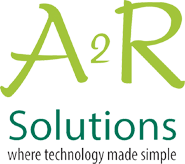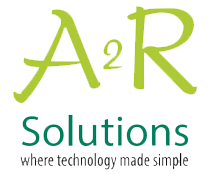
Sage 300 ERP System Designed for Small and Medium-Sized Businesses
Introduction
In today’s fast-paced business world, efficiency and productivity are paramount, especially for small and medium-sized businesses (SMBs). Enterprise Resource Planning (ERP) systems have become essential tools in achieving these goals. One such system tailored specifically for SMBs is the Sage 300 ERP. Let’s dive into what makes Sage 300 ERP a top choice for many businesses.
What is Sage 300 ERP?
Sage 300 ERP is packed with features designed to streamline operations, enhance productivity, and improve overall business management. Key features include comprehensive financial management, efficient inventory control, robust reporting capabilities, and seamless integration with other business systems.
Benefits of Using Sage 300 ERP
Sage 300 ERP automates routine tasks, reducing manual effort and allowing employees to focus on more strategic activities. This leads to increased efficiency and productivity across the organization. With advanced financial management tools, Sage 300 ERP provides real-time insights into financial performance, helping businesses make informed decisions. It simplifies tasks such as budgeting, forecasting, and financial reporting. Effective inventory management is crucial for SMBs. Sage 300 ERP offers detailed inventory tracking, helping businesses maintain optimal stock levels, reduce carrying costs, and improve customer satisfaction.
Core Modules of Sage 300 ERP
Financial Management
General Ledger
The General Ledger module serves as the backbone of financial management, providing a comprehensive view of all financial transactions and enabling accurate financial reporting.
Accounts Payable
The Accounts Payable module streamlines the payment process, ensuring timely payments to vendors and improving cash flow management.
Accounts Receivable
The Accounts Receivable module helps businesses manage customer invoices and payments efficiently, reducing the time spent on collections and improving cash flow.
Customizability and Scalability
Tailoring to Business Needs
Sage 300 ERP is highly customizable, allowing businesses to tailor the system to their specific needs. From custom fields to personalized reports, the system can be adapted to meet unique business requirements.
Scaling as Your Business Grows
As businesses grow, their needs change. Sage 300 ERP is scalable, meaning it can grow with your business, accommodating increasing data volumes and more complex processes without compromising performance.
Integration Capabilities
Integration with Other Systems
Sage 300 ERP can integrate seamlessly with other business systems, such as CRM and e-commerce platforms, ensuring data consistency and improving operational efficiency.
API and Third-Party Integrations
The system offers robust API capabilities, allowing businesses to connect with third-party applications and extend the functionality of Sage 300 ERP.
User Experience and Interface
Ease of Use
One of the standout features of Sage 300 ERP is its user-friendly interface. The intuitive design makes it easy for users to navigate and perform tasks efficiently.
Accessibility and Mobility
With mobile access capabilities, users can access Sage 300 ERP from anywhere, at any time. This flexibility is particularly beneficial for businesses with remote or mobile workforces.
Security Features
Data Protection
Sage 300 ERP places a strong emphasis on data security, employing advanced encryption and security protocols to protect sensitive business information.
User Permissions and Roles
The system allows businesses to set up user permissions and roles, ensuring that employees have access only to the information they need, enhancing security and data integrity.
Implementation Process
Steps to Implement Sage 300 ERP
Implementing Sage 300 ERP involves several steps, including planning, data migration, system configuration, and user training. A structured implementation process ensures a smooth transition and minimizes disruptions to business operations.
Training and Support
Sage offers comprehensive training and support resources to help businesses get the most out of their ERP system. From online tutorials to dedicated support teams, businesses can access the help they need when they need it.
Cost Considerations
Pricing Models
Sage 300 ERP offers flexible pricing models to suit different business needs and budgets. Businesses can choose between perpetual licenses and subscription-based pricing, depending on their preferences.
Return on Investment (ROI)
Investing in an ERP system is a significant decision. Sage 300 ERP delivers a strong ROI by improving efficiency, reducing costs, and driving business growth.
Case Studies
Many SMBs have successfully implemented Sage 300 ERP and experienced significant benefits. For example, a manufacturing company improved its production planning and reduced inventory costs, while a service-based business streamlined its project management processes.
Sage 300 ERP caters to various industries, including manufacturing, distribution, and services. Industry-specific case studies highlight how the system can address unique challenges and drive success in different sectors.
Challenges and Solutions
Common Implementation Challenges
Implementing an ERP system can be challenging. Common issues include data migration difficulties, user resistance, and system customization complexities.
Solutions and Best Practices
To overcome these challenges, businesses should follow best practices such as thorough planning, involving key stakeholders, and providing adequate training and support to users.
Future Trends in ERP for SMBs
Technological Advancements
The ERP landscape is constantly evolving, with new technologies such as artificial intelligence, machine learning, and cloud computing shaping the future of ERP systems.
The Future of Sage 300 ERP
Sage 300 ERP continues to evolve, incorporating the latest technological advancements to provide SMBs with cutting-edge tools and capabilities.
Comparing Sage 300 ERP with Other ERP Systems
Sage 300 vs. Competitors
When compared to other ERP systems, Sage 300 ERP stands out for its affordability, ease of use, and robust feature set.
Unique Selling Points of Sage 300
Sage 300 ERP offers several unique selling points, including its strong focus on SMBs, comprehensive functionality, and flexibility to adapt to different business needs.
Conclusion
Sage 300 ERP is a powerful and versatile ERP system designed to meet the unique needs of small and medium-sized businesses. With its comprehensive features, user-friendly interface, and strong support, it is an excellent choice for businesses looking to improve efficiency, streamline operations, and drive growth.
Are you looking for accounting software companies in Dubai, business accounting software companies in Dubai, HR & Payroll software companies in Dubai, sage 50 UK accounting software in Dubai or sage 300 erp in Dubai at very competitive pricing? Contact us for accounting software companies in Dubai, business accounting software companies in Dubai, HR & Payroll software companies in Dubai, sage 50 UK accounting software in Dubai or sage 300 erp in Dubai at very genuine pricing.



